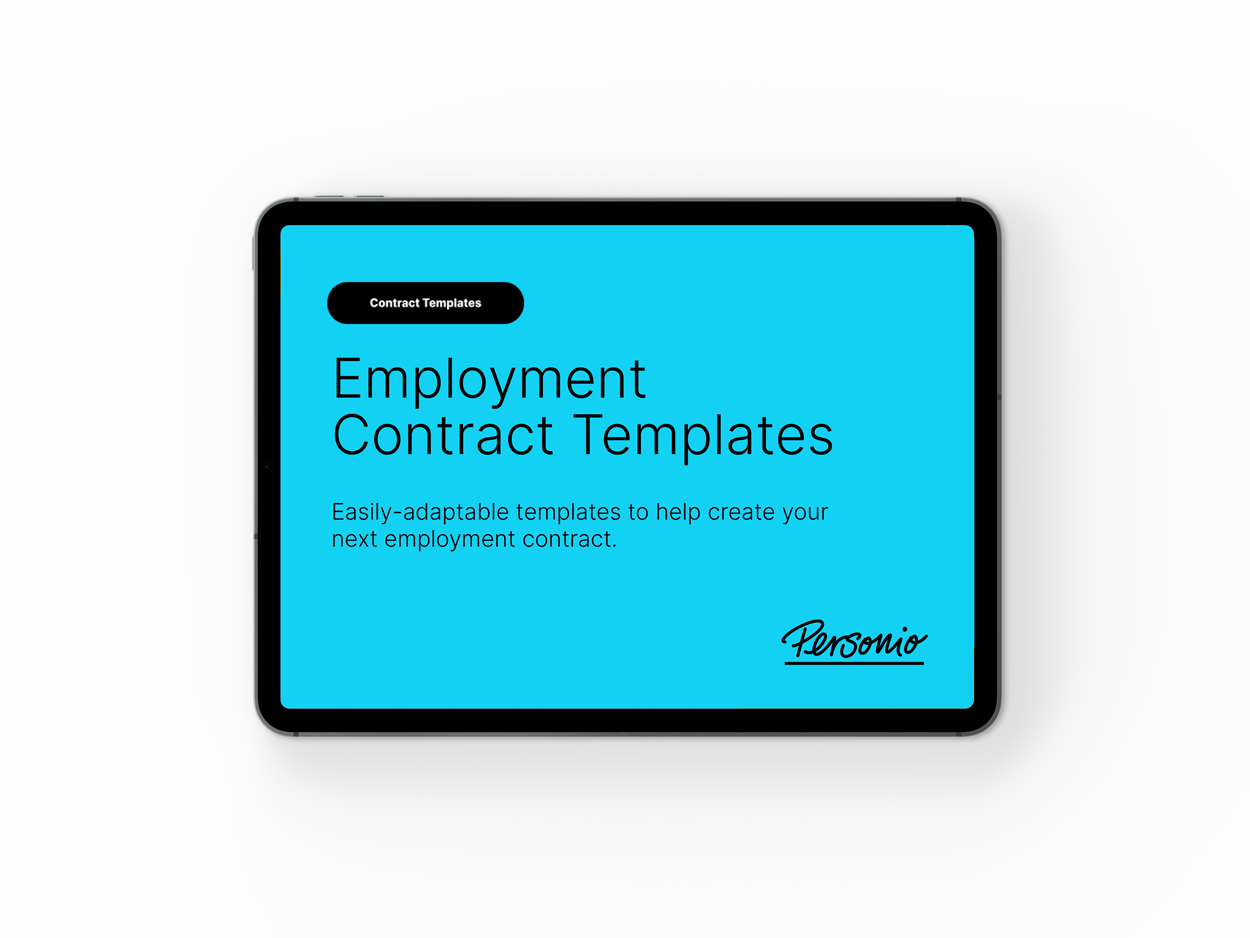
Performance Management Software
Simplify how you deliver your next performance review cycle.
Learn moreTemporary Workers: Definition, Contract and More

During your company’s busiest times of the year, an organisation may find itself in need of temporary workers to get everything done. Temporary workers can provide valuable support, shouldering additional workloads without requiring a long-term commitment.
Key Facts
Temporary workers are employed at a company for a limited time to help handle busy seasons or to lend specialty knowledge to complex projects.
Temporary workers are cost-effective and faster to hire but lack the company loyalty and investment in the company permanent employees may have.
Companies should draft contracts outlining what they expect from a temporary worker and the duration of their employment.
Contents
- 1What Is a Temporary Worker?
- 2Should HR Managers Hire Temporary Workers?
- 3How Can HR Successfully Manage Temporary Workers?
- 4Temporary Employee Contract: The Basics
- 5Advantages and Disadvantages of Temporary Employees
- 6Frequently Asked Questions About Temporary Workers
- 7Turn Temporary Work into Long-Term Results With Personio
What Is a Temporary Worker?
A temporary worker is someone hired for a set period or to help with a large project when the business is shorthanded. Companies can find these types of employees through the normal recruitment process or by hiring them through a temp agency.
Should HR Managers Hire Temporary Workers?
Temporary workers are common hires because they can help fill various staffing needs within the workplace. A temp can substitute for employees on leave so the absence doesn’t affect their team's workflow. You can hire individuals with more specialised skills to complete complex projects your usual staff doesn’t have the proficiencies or time to do. They’re also essential when more hands are needed, like a department store during peak holiday shopping season.
How Can HR Successfully Manage Temporary Workers?
There are unique aspects to managing temporary staff compared to managing the regular workforce. Below are a few tips that can help make that process smoother and maximise success.
Find temps experienced in your industry. Since temporary employees tend to work for a limited period, there’s little to no time to train them in the basics. Make sure to find temps that already understand industry procedures and the basic skills needed for the position they’re filling.
Perform a background check. A thorough background check ensures that any temporary worker you bring into your company won’t harm your other employees. Work with your legal department to establish a background check policy for a transparent and thorough procedure each time. If you work with a temp agency, they will often conduct this background check for you.
Confirm the details. Sit down with the temp and outline the terms of their employment. Explain how long they’ll be on the payroll, their wage and any time off they’re entitled to. You should also be clear about their responsibilities and the standards they need to maintain to complete the job or be considered for future temp opportunities.
Draft a confidentiality agreement. Temporary workers may see sensitive information and they could bring that data to other companies. Having them sign a confidentiality agreement is an effective way to protect any sensitive information they gain access to.
Temporary Employee Contract: The Basics
Temporary employee contracts are required to ensure the employment arrangement falls within UK laws. These contracts also outline what’s expected from the temp while they work in your company. Some of the most important things to include in your contract terms include:
Terms of employment. This section details the temp's position during their employment, the hours they’re expected to work and their wages.
Benefits. The benefits section outlines the company incentives offered to a temporary employee beyond what UK employment law requires.
Job responsibilities. This part of the contract provides a detailed summary of the temp's primary duties within their position and other responsibilities they’ll have within the company.
Duration of the fixed term contract. This section states how long the temp worker will remain with the company and when their period officially ends.
Download: Employment contract templates

We took the time to create some helpful, UK-specific employment contract templates to help your organisation sign your next great hire. Download them today for free.
Download them nowAdvantages and Disadvantages of Temporary Employees
Temporary workers can provide notable benefits to the company, but there are certainly drawbacks that you’ll have to address before you can use them successfully.
Advantages of Temporary Workers
They are cost effective. Supplementing your normal workforce with temporary workers reduces labour costs because they don’t require an annual salary. You also don’t have to pay for any additional training or benefits full-time workers are entitled to.
It’s faster to hire them. Temps are typically hired purely for technical skills rather than a long-term employee arrangement. There’s no need to find out if they fit the company culture; as a result, it’s easier to onboard them.
Flexible. Because temporary employees are easier to hire, they can help your company stay on track after a sudden shift in the market if their experience matches consumer demand.
Fast results. Onboarding a temp usually only requires introducing them to the project they’ll be working on. Familiarising them with the company on an in-depth level isn’t necessary, so they’re free to get to work as quickly as possible.
Disadvantages of Temporary Workers
Competition. If you’re in an industry with a high demand for skilled workers, other companies will compete with you to get the best temp workers.
No quality standard. Even when you’re being as thorough as possible, there’s no telling if a temp worker will be a good fit for the job until they are officially in the role. Hiring someone who can’t perform the job to company standards is still theoretically possible.
Lack of loyalty. Temporary workers usually won’t develop the loyalty a full-time employee because they’re only employed for a limited time. This could lead to clashes with teammates or the company culture. It may also contribute to a lackadaisical attitude toward the work in question.
Frequently Asked Questions About Temporary Workers
What Is the Meaning of Temporary Employment?
Temporary employment is when someone is employed at a company for a limited, predetermined time.
How Long Can You Be a Temporary Employee?
UK law states that a temporary worker can only remain on contract for four years before automatically becoming a permanent employee.
What Are the Advantages and Disadvantages of Temporary Work?
The advantages of temporary work are its cost effectiveness, faster hiring process, flexibility in hiring and quick results. The disadvantages relate to recruitment and quality standards, as well as a lack of loyalty and vested interest from the temporary employee.
What Is the Role of Temporary Staff?
Temporary staff is meant to fill empty positions when companies are short-handed or to handle company projects requiring specific expertise.
Turn Temporary Work into Long-Term Results With Personio
Companies can often handle peak periods with their primary staff. However, there comes a time where current staffing levels aren’t enough to get through a particular period. When hiring permanent staff doesn’t make sense for the situation at hand, contingent workers provide a cost-effective alternative to getting essential tasks done on time and on budget.
The hardest part is finding the right people who can deliver the best results. With Personio’s cloud-based recruiting software, you can expand your recruiting efforts and bring top talent right to you. Book a demo today and discover how else Personio can help your company thrive.
Disclaimer
We would like to inform you that the contents of our website (including any legal contributions) are for non-binding informational purposes only and does not in any way constitute legal advice. The content of this information cannot and is not intended to replace individual and binding legal advice from e.g. a lawyer that addresses your specific situation. In this respect, all information provided is without guarantee of correctness, completeness and up-to-dateness.
